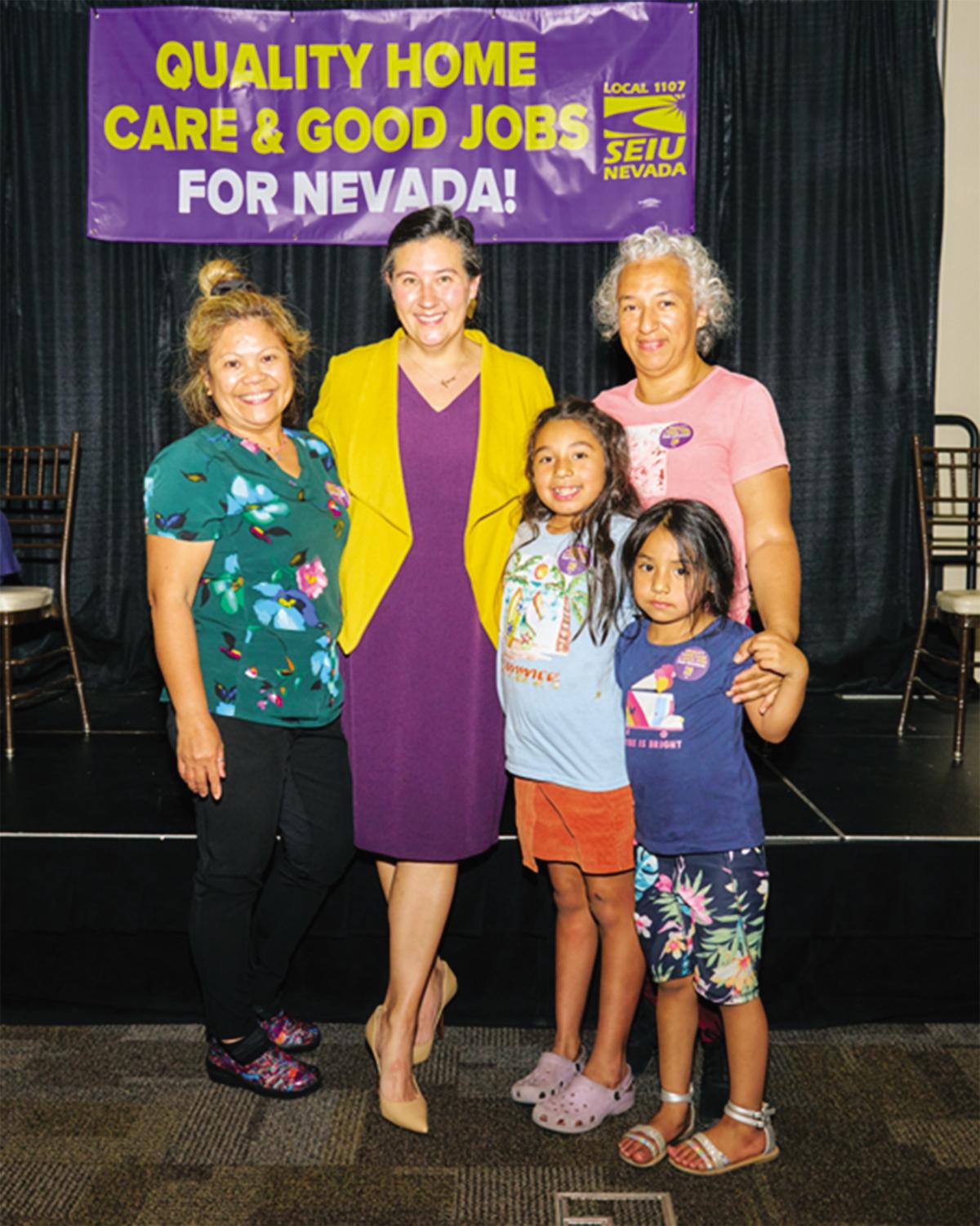
In Nevada, where nearly half a million seniors reside, the demand for home caregivers is escalating rapidly, with a projected need for 32,000 more in the next decade to adequately serve its aging population.
Homecare workers help with all the daily activities that empower seniors and people with disabilities to live at home, including bathing, feeding, going to doctors’ appointments, grocery shopping, and medication reminders. It is their labor that enables our loved ones to live in dignity, health, and well-being while staying in their home.
Retaining current homecare workers is imperative, and presently one out of every two leave their positions within the first year due to insufficient wages and benefits. The composition of Nevada’s homecare workforce, comprising 85% women and 59% people of color, reflects the diversity within the state, including Asian communities. These communities often prioritize caring for their elders at home, reflecting deep-rooted cultural values. It’s pivotal for policymakers to acknowledge and support this as the elderly demographic continues to expand.
On Thursday, SEIU Local 1107, the largest union of healthcare workers in Nevada, held a Home Care Legislative Town Hall to address the home care crisis, and to unveil their policy goals to ensure Nevada has the workforce necessary to provide quality services to seniors and disabilities. Some of the policy priorities include raising wages to support, recruit, and retain this workforce, and increasing the number of hours Medicaid pays workers to care for patients in need.
Filipino homecare worker and proud SEIU Local 1107 member, Liza Garcia, shared her experience as a new homecare worker. Though she only started a few months ago, she has already been exposed to the struggle so many are facing.
“We have clients that need more hours of care, and they aren’t able to get it.” She explained the situation using the example of a current client she cares for, who is approved by Medicare for 18 hours of paid care per week, or just 2.5 hours per day. People who receive home care services typically need step-by-step assistance with these activities, typically taking longer than average to complete. “It takes 3-4 hours just to bathe and feed my client, but we need additional hours in order to do laundry or assist her in the other ways she needs.”
Increasing service hours isn’t the only thing Garcia is fighting for with the union. “Compared to California our pay is way far away. I know this isn’t California but with the cost of living everyone is just trying to get by. It feels like it’s not enough.” And, like many home caregivers, Garcia is driven by the heart of what she does, and the patients she cares for.
“It’s not just about the money. It’s about the health of these people. I don’t want this to be placed on the back burner. There are people in critical conditions, and for someone like my client, 18 hours isn’t enough.”
SEIU’s polling data found that among likely voters in Nevada, 80% are concerned about the shortage of homecare workers, 85% support raising caregivers’ wages, and 88% said they support providing basic benefits like health care and paid sick days for caregivers. But perhaps the most pertinent statistic given the election year, is that 91% of democrats, 83% of Independents, and 79% of Republicans said they are more likely to vote for candidates who are committed to addressing the home care crisis and improving pay for workers.
Senators Rochelle Nguyen (SD-3) and Dina Neal (SD-4), alongside Nevada’s Health and Human Services Director Richard Whitley, were honored at the Town Hall event with Home Care Champion awards for their unwavering advocacy on behalf of homecare clients and workers. Last year, Nguyen led the effort to raise the hourly minimum wage for home care workers to $16/hour, up from $11/hour where it had stagnated for 20 years. Neal sponsored a bill in the 2021 legislative session that established a Home Care Employment Standards Board, ultimately paving the way for the new minimum wage.
But SEIU 1107 isn’t done fighting for home care workers yet. At the Town Hall event, they outlined their policy priorities for 2025 which includes a $20/hour minimum wage for home care workers, increased client service hours, and high quality in-person training for the job.
As Nevada’s senior population continues to grow, addressing the needs of both home care workers and their clients is not just an economic necessity but a moral imperative. By prioritizing fair wages, adequate benefits, and sufficient service hours, we can ensure that our seniors receive the care they deserve and that caregivers can continue to do their important work with dignity and support. (Paula Pecorella)







